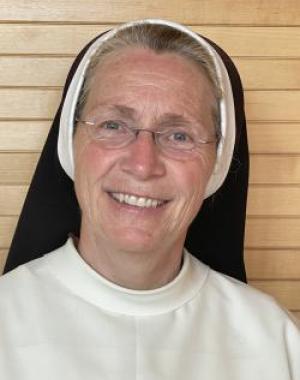t was the Associate Pastor’s first Sunday in his new assignment. He was counseled (or cautioned) by the pastor that the congregation was somewhat unenthusiastic during Mass. The idea came to him to begin Mass with a joke or humorous story as a way of engaging them. As the choir concluded what seemed like their Broadway debut, he tapped the microphone to test its sound. Nothing! He panicked and tapped it again this time speaking apologetically to the congregation, ‘Something’s wrong with the mic.’ To which everyone dutifully responded, ‘And also with you, Father!’
Ah, the familiarity of the Mass responses! We could say them with our eyes closed - and perhaps sometimes many of us early risers do! Yet familiarity can be a good thing, for it allows us to concentrate on the symbolic gestures during Mass and to ponder the depth of their meaning. However, come November 27, 2011 when the Church begins to use the revised translation of the 2002 Roman Missal, some of this familiarity will diminish, and for many Catholics this will be a challenge. Even if priests spend the recommended year preparing their congregation for the new texts, it is most certain that for a few Sundays following November 27, 2011, some in the congregation will continue to profess proudly their faith in Christ who is ‘one in being’ with the Father, instead of ‘consubstantial.’ Habits are hard to change - especially prayerful ones.
Often our struggles with change - especially in the area of Church discipline or teaching - result from misunderstandings, which in turn can lead to camps or ‘extremist ideology.’ At one extreme we can find a certain ‘dogmatic fundamentalism’ or ‘traditionalism’ that views change, especially liturgical change, as a ‘rupture from the past.’ At the other extreme lies a kind of ‘enlightened progressivism’ that sees reality in ‘continuous flux’ and theology in a state of ‘process.’
Neither position is true, as Blessed John Henry Cardinal Neman insightfully demonstrates in his magnificent work, The Development of Doctrine. Organic growth in doctrine is always rooted in the unchanging reality of Jesus Christ and His revelation, even as it matures or develops into fuller expression.
The rest of this online article is available for current Guild members.
This article is from The Sower and may be copied for catechetical purposes only. It may not be reprinted in another published work without the permission of Maryvale Institute. Contact [email protected]


















